Formolo: When people have faith in you, it gives you an extra gear
Cannondale-Garmin man looks to shine at Tirreno-Adriatico
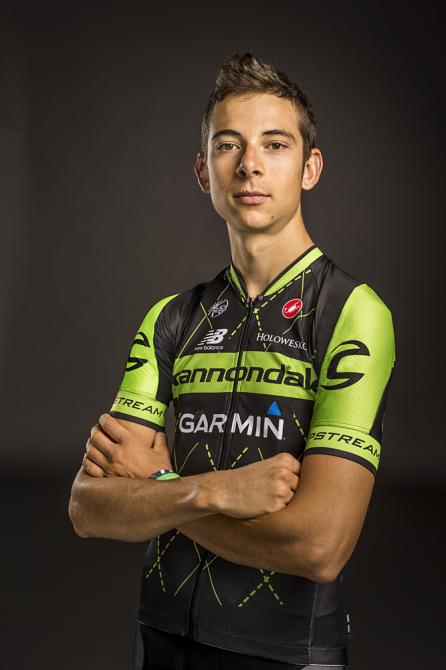
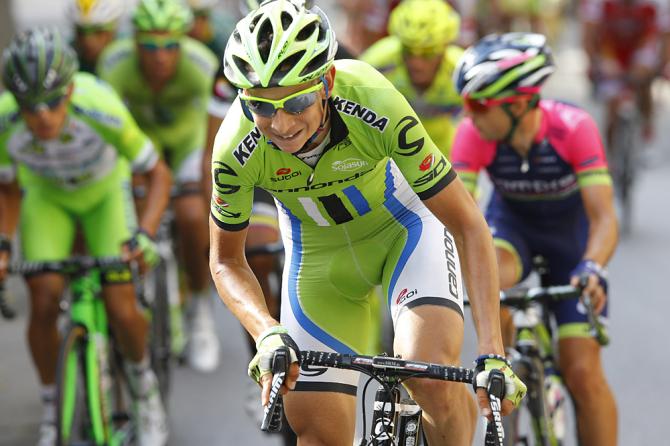
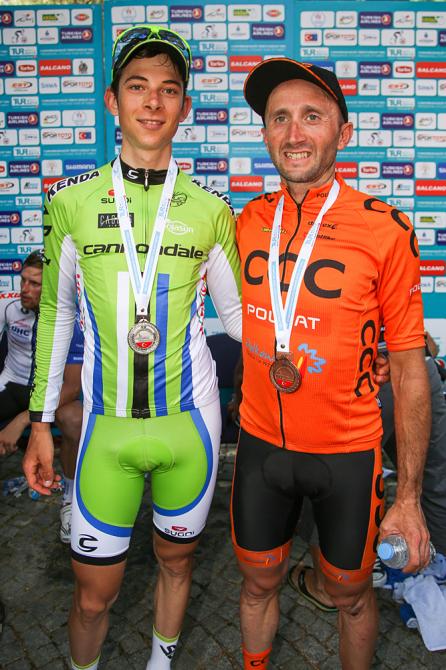
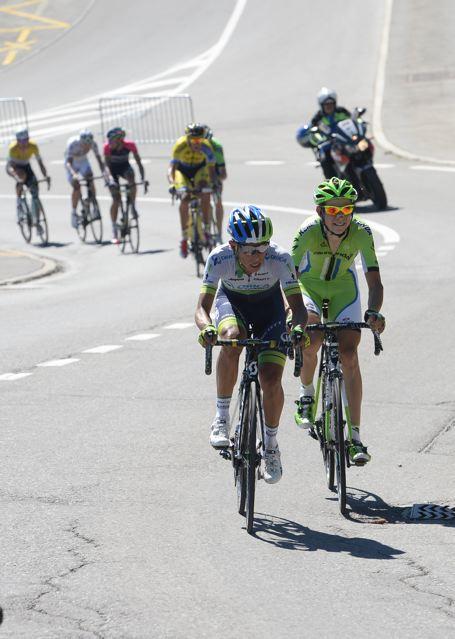
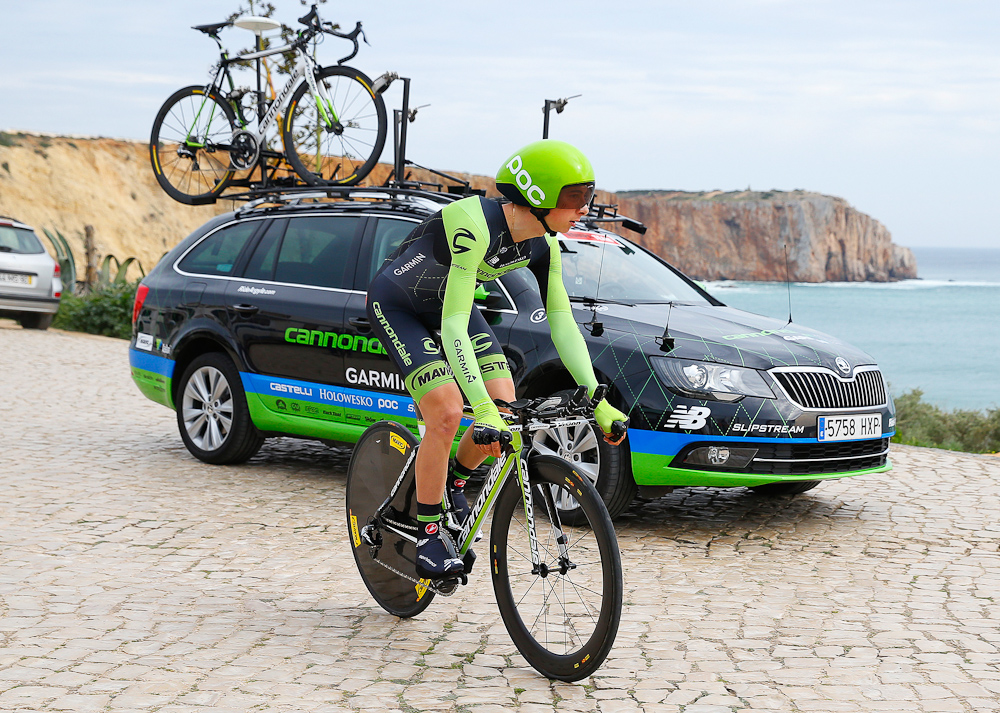
For most young professionals, it would be a source of pressure or perhaps even mild embarrassment, but Davide Formolo merely shrugged when reminded that Cannondale-Garmin team manager Jonathan Vaughters had said he had “no doubt” that the new arrival would one day win the Giro d’Italia.
Vaughters had, in fact, been seeking to offset some of the home expectations faced by the 22-year-old, telling Gazzetta dello Sport in a January interview that he was unlikely to ride the Giro this season, but in a social media age, it was the easy sound-bite – “Formolo will win the Giro d’Italia” – that was diffused.
“No, it’s not an added pressure. It’s a stimulus and it motivates me to do my job at 110 percent,” Formolo told Cyclingnews. “When you know people have that kind of faith in you, it just gives you an extra gear.”
On paper, Dan Martin and Ryder Hesjedal line up at Tirreno-Adriatico on Wednesday as Garmin-Cannondale’s leaders, though as Martin pointed out last month, the mantle might yet fall to Formolo. “It could be Formolo, the way he’s going – he’s flying,” Martin said, though he warned: “But he’s a young kid and we’ve got to take pressure off him.”
A couple of factors are already helping to lift some of the burden from Formolo’s shoulders in his home country. This week, for instance, Tour de France winner Vincenzo Nibali (Astana), in one of his few Italian races this year, will draw the home press like moths to light. Among his own age group, meanwhile, Formolo is – for now at least – outshone by Fabio Aru, whose exploits at last year’s Giro ensured that he commands glowing column inches.
Formolo finished fourth behind Aru at the prestigious Giro della Valle d’Aosta as an amateur in 2012 and while he expected the Sardinian’s smooth transition to the professional ranks, he was surprised by his ability to finish in the top five at two Grand Tours in one season at such a tender age.
“It’s motivating for me, because Aru was strong at the Giro and Vuelta last year as a young guy,” he said. “I would never have imagined that it was possible to do the Giro and Vuelta like that. I knew that he’d be good at the Giro because he’d prepared all year for it, but to follow it up with the Vuelta was very impressive. I’ve got a bit of work to do and I’ll see where that takes me.”
Get The Leadout Newsletter
The latest race content, interviews, features, reviews and expert buying guides, direct to your inbox!
Talk of the Giro della Valle d’Aosta – “my favourite race” – brings Formolo around to the subject of the ongoing malaise in Italian cycling. The demise of the old Cannondale squad means that there is now just a single Italian team left in the WorldTour, compared to four in 2005, but the situation below the water line is perhaps even more critical.
That other great Italian amateur race, the Girobio, where Formolo placed second behind his new teammate Joe Dombrowski in 2012, is no more, and Italy’s abject underage record at international level over the past decade or so suggests that the production line of young talent is simply petering out.
Unlike the situation across the border in France, amateur teams have been slow to break from the existing system and register as Continental outfits, and while Formolo emerged from the decidedly old school Petroli-Firenze set-up, the team has since ceased operations. All told, the problems are financial as well as structural, with no quick fix in sight.
“Now in Italy they’re trying to implement the Continental system, but now they’ve found themselves with races that were meant to be for professional teams and they’re filled with Continental teams instead,” Formolo said. “Cycling is still loved in Italy, but I don’t know what the best model to follow is.
“Maybe it’s a problem that goes beyond cycling too, because when the economy is in the state it’s in now, it’s difficult to find companies who are willing to put up the money to sponsor a good amateur or Continental team. Finding a big sponsor for the WorldTour would be even better, of course, but we’ll see how things go and hope things improve and this problem passes.”
Cannondale-Garmin
For now, Formolo finds himself riding for a foreign team as part of the delegation that made the switch from Roberto Amadio’s Italian Cannondale set-up during the merger with Garmin. Vaughters has already judged the union a rather smoother affair than the uneasy alliance with Cervélo in 2011, thanks largely to the relative youth of Formolo, Davide Villella, Moreno Moser et al.
“When you make a change, you know what you’re leaving behind but you don’t know what you’re going to find ahead of you. But fortunately, I’ve come into a good team, with a lot of young riders, and there’s a good feeling,” Formolo said. “And besides, last year was my first year as a professional and that was new experience for me too, and it went well. It’s what you do on the bike that counts.”
Last season, Cannondale’s riders were barred from having outside coaches and were all placed under the supervision of internal trainer Sebastian Weber, formerly of Highroad and Katusha. But while Weber came across as part of the merger, that rule did not. Moser, for instance, is now coached by Michele Bartoli, but after a year that saw him take second behind Nibali in the national championships on the back of a 7th place finish at the Tour de Suisse, Formolo has opted to retain Weber’s services.
“We’re not all the same and I worked well with Sebastian. I felt good on the bike, so continuing with him was the natural choice for me,” Formolo said. “I came from the amateurs last year so obviously the preparation was different anyway, and I learned the fundamental things to do with this sport. Up until I turned professional, it was more of a game than work really.”
Another influence on Formolo during his debut season was Ivan Basso, who has since re-joined Bjarne Riis at Tinkoff-Saxo. Basso’s history, of course, is a problematic one and he served a doping ban when bags of his blood were seized from Dr. Eufemiano Fuentes’ Madrid clinic during the Operacion Puerto investigation, before returning to win the Giro in 2010. Formolo said that the period was one that Basso chose not to revisit.
“He never wanted to talk about the bad moments,” Formolo said. “I can imagine he felt at those times and I don’t want to go through the same thing. It was clearly a hard time that marked his life but he managed to react and come back to show that his strength was in his legs.
“Having him as a teammate was like a dream and he was so supportive too. I was very cautious around him at the first training camp because he was always my hero. But we got close and we even became room-mates when we raced together. He’s an important person for me.”
Looking forward to 2015, Formolo was coy about his goals, preferring to focus on the process rather than the results. He has an ongoing target of improving his time trialling but he insisted that making his Giro debut this year is not an overriding ambition. “I’m still only 22 years old, so it doesn’t change a lot if I do it this year or next,” he said.
“In terms of results, I can’t really tell you what my goals are. Of course, getting a big result at Tirreno would be a dream but whenever you pin on a number, it’s the same: you want to win, you want to attack. You really just want to enjoy yourself and entertain the public too.”

Barry Ryan was Head of Features at Cyclingnews. He has covered professional cycling since 2010, reporting from the Tour de France, Giro d’Italia and events from Argentina to Japan. His writing has appeared in The Independent, Procycling and Cycling Plus. He is the author of The Ascent: Sean Kelly, Stephen Roche and the Rise of Irish Cycling’s Golden Generation, published by Gill Books.